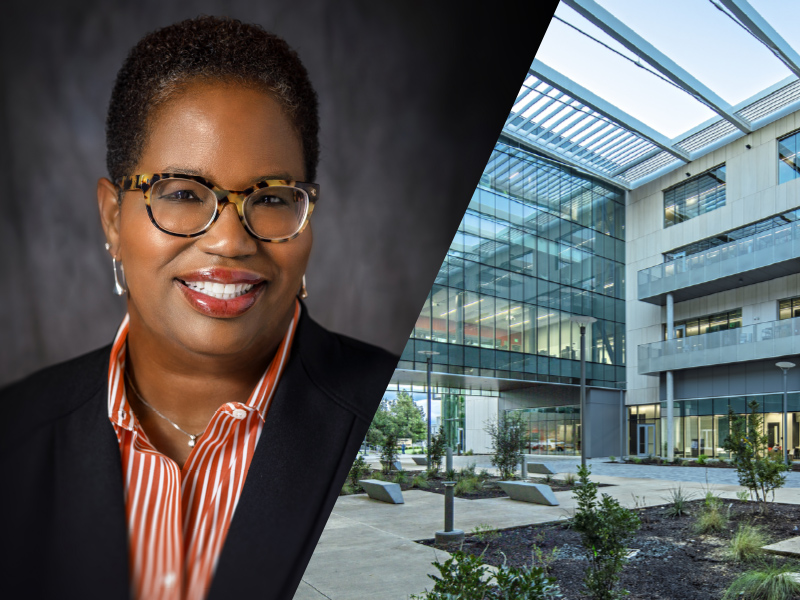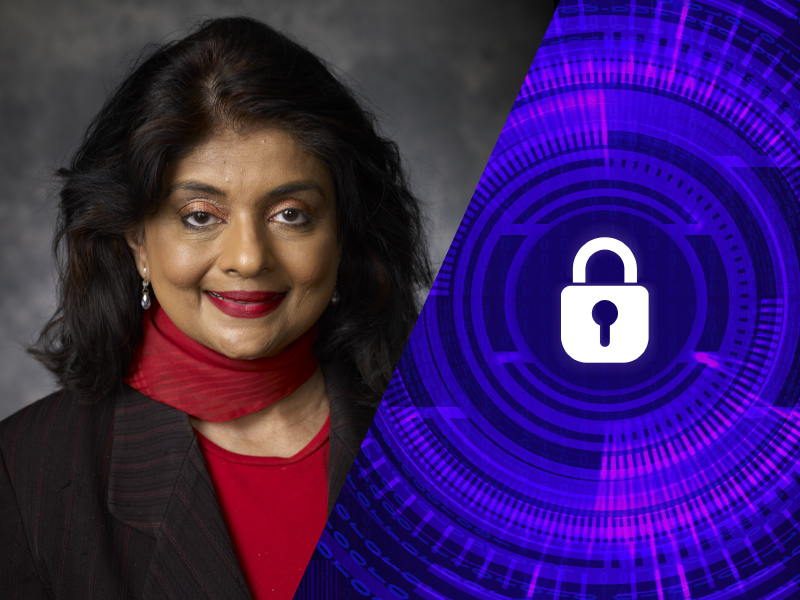
Dean, Cybersecurity Researchers Recognized in UT Dallas Investiture Ceremony
Four faculty members in the Erik Jonsson School of Engineering and Computer Science were honored for distinguished academic careers at a virtual investiture ceremony.
Endowed chairs and professorships are the highest academic award leadership of The University of Texas at Dallas can bestow on a faculty member. These endowments provide funds to advance research and instructional programs and are named in honor of key innovators as well as the donors who established the endowments.
“Our efforts to attract and retain top faculty in a competitive academic environment are assisted greatly by generous donors who help to establish these endowed positions. We are proud of our outstanding faculty and their work to provide exceptional education and mentorship for our students.”
Dr. Inga Musselman, UT Dallas provost, vice president for academic affairs and the Cecil H. Green Distinguished Chair of Academic Leadership
Dr. Stephanie G. Adams, holder of the Lars Magnus Ericsson Chair in Electrical Engineering and fifth dean of the Jonsson School, was first to be recognized at the ceremony this summer. Dr. Karan L. Watson, senior professor of electrical and computer engineering at Texas A&M University, introduced Adams as her “role model and personal friend for more than 30 years.”
Adams responded, “It’s more humbling to have my academic mom present.”
After acknowledging her parents and other former colleagues and friends present, Adams expressed inspiration from Lars Magnus Ericsson, in whose honor executives at Ericsson Inc. created the endowment.
“His word was sufficient, he was open-minded, he recognized gifted employees and he was an outstanding inventor,” she said.
Adams later recognized the other three Jonsson School honorees, all professors of computer science, saying that they have “singlehandedly put cybersecurity and UT Dallas on the map.”
Dr. Kevin Hamlen, now a Louis Beecherl Jr. Distinguished Professor, was introduced by Daniel Garcia BS’21, a former computer science student Hamlen taught. While in high school, Hamlen realized that it was too easy to hack into computers, he said. Security was then considered a subcategory of miscellaneous.
Hamlen recognized the influence of Dr. Bhavani Thuraisingham, who recruited him to join the Cyber Security Research and Education Institute (CSI) at UT Dallas.
“She can be a very convincing woman,” Hamlen said.
In September, Hamlen succeeded Dr. Thuraisingham as executive director of the institute.
At Investiture, Dr. Murat Kantarcioglu, now the Ashbel Smith Professor, was introduced by daughter Asli Kantarcioglu. She described how at home her dad passionately discusses that a smart speaker device could be taken over by hackers, registered her for computer science camps and regularly warns her of security issues.
“I am proud of my dad’s accomplishments,” Ashli said.
Annie Paul, a computer science senior, then introduced Dr. Bhavani Thuraisingham, describing how she is a mentor who works on problems of national significance.
“Such a rewarding day seeing Kevin Hamlen and Murat Kantarcioglu also being recognized,” she said. “We are mentoring the next generation.”
“Where I was growing up in Sri Lanka, then called Ceylon, I actually traveled by a rickshaw to get to school,” said Thuraisingham, holder of the Founders Chair in Engineering and Computer Science. “It is amazing to receive this award especially thinking about where I started. I got my lucky break in 1985 when I became a U.S. citizen and Honeywell landed a cybersecurity contract.”
She added, “I want to recognize my husband (Thevendra) of 46 years who has always supported me.”

Dean of the Erik Jonsson School of Engineering and Computer Science
Professor of Systems Engineering
Lars Magnus Ericsson Chair in Electrical Engineering
Adams is an engineering education thought leader who has served as the fifth dean of the Erik Jonsson School of Engineering and Computer Science since 2019. She is also a professor of systems engineering. Her areas of research encompass effective teaming in the engineering classroom, broadening participation in STEM, faculty and graduate student development, global education and quality control and management. Adams’ passion and work toward greater inclusion in STEM derives, in part, from her belief in the importance of engineering to society.

Professor of Computer Science
Executive Director, Cyber Security Research and Education Institute
Louis Beecherl Jr. Distinguished Professor
Hamlen develops techniques to deceive online intruders and learn from their tactics. In 2019, he introduced crook-sourcing, which builds new security defenses by tricking hackers into taking actions that actually train the computer to recognize and stop future attacks. Known for his formal approaches to teaching, Hamlen hopes to arm the next generation of computer scientists with the skills necessary to design and assess mission-critical software systems and to build rigorous, mathematically provable computer security.

Professor of Computer Science
Member, Cyber Security Research and Education Institute
Ashbel Smith Professor
Kantarcioglu’s research focuses on developing novel techniques to protect the privacy and security of data continuously created and stored online on platforms, ranging from social media to health records to videoconferencing sites. His research includes developing new algorithms to study how much and what type of information can be extracted without sacrificing security and individual privacy.

Professor of Computer Science
Founder, Cyber Security Research and Education Institute
Founders Chair in Engineering and Computer Science
Thuraisingham is a leading expert in integrating cybersecurity with artificial intelligence and data science. As founder and longtime executive director of the UT Dallas Cyber Security Research and Education Institute, Thuraisingham developed a team of members in cybersecurity research and education across multiple schools at UT Dallas that has generated more than $65 million in research funding and more than $15 million in education funding